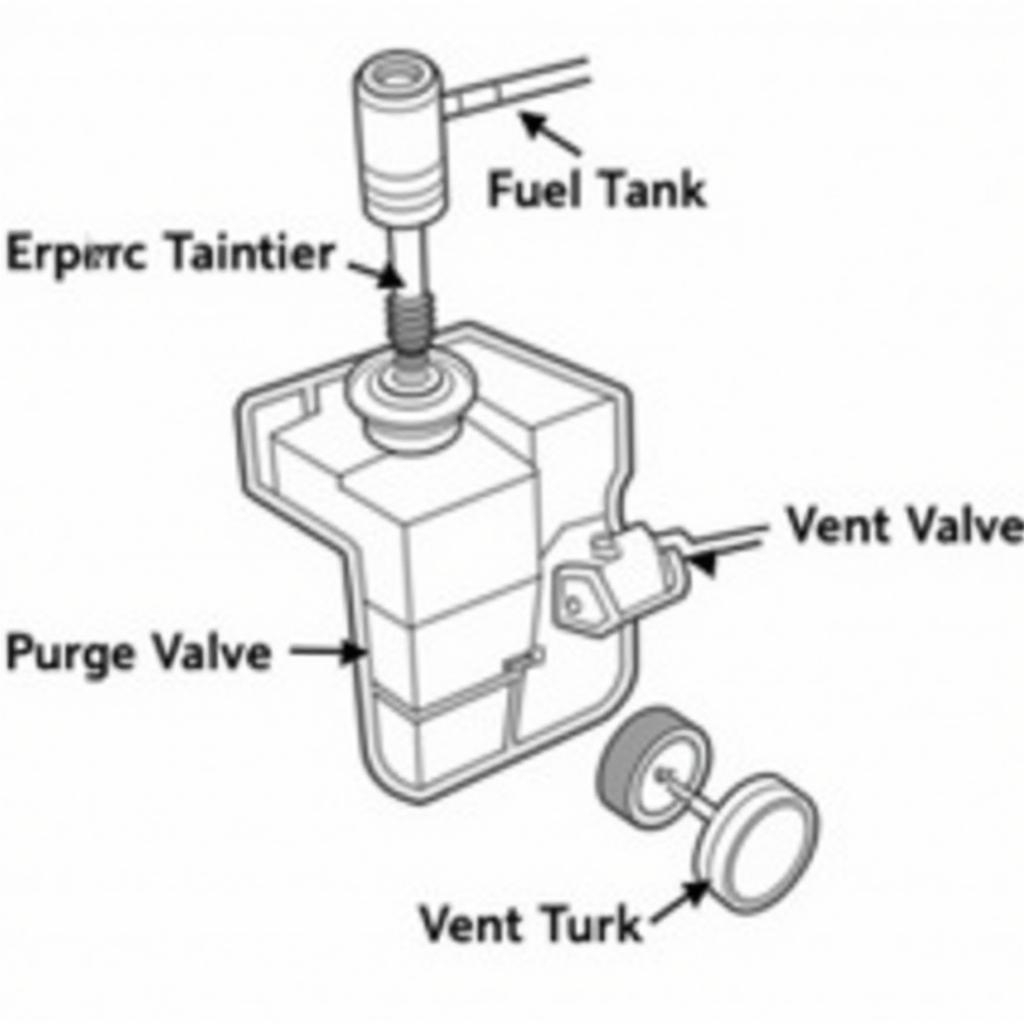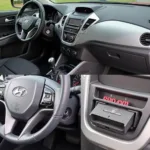The OBD2 code P1457 in your Honda Accord indicates a potential issue with your car’s Evaporative Emission Control System (EVAP). This system plays a crucial role in preventing fuel vapors from escaping into the atmosphere. But what does this code mean for your Honda Accord, and how can you address it?
 Honda Accord EVAP System
Honda Accord EVAP System
Understanding the EVAP System and Code P1457
Your Honda Accord’s EVAP system is designed to capture and store fuel vapors from the gas tank, preventing them from being released into the environment. These vapors are then purged into the engine to be burned during combustion. The P1457 code specifically signals a problem with the EVAP system’s vent system control circuit.
The vent system control circuit is responsible for managing the flow of air into the charcoal canister, a crucial component of the EVAP system. This canister stores the fuel vapors until they are ready to be purged into the engine. When the vent system control circuit detects an issue, such as a blockage or leak, it triggers the P1457 code.
Common Causes of OBD2 Code P1457 in Honda Accord
Several factors can lead to the appearance of the P1457 code on your Honda Accord:
-
Loose or Damaged Gas Cap: A loose or damaged gas cap is one of the most common causes of this code. The gas cap seals the fuel tank, preventing vapor leaks.
-
Faulty Vent Valve: The vent valve regulates the flow of air into the charcoal canister. If it’s stuck closed, it can trigger the P1457 code.
-
Clogged Charcoal Canister: Over time, the charcoal canister can become clogged with fuel vapors, restricting airflow and activating the code.
-
Damaged EVAP Lines or Hoses: Cracks or leaks in the EVAP lines or hoses can disrupt the system’s pressure and lead to the P1457 code.
Diagnosing and Fixing the P1457 Code
Identifying the exact cause of the P1457 code requires a systematic approach:
-
Check the Gas Cap: Start with the simplest solution. Ensure your gas cap is securely tightened. If it appears damaged, replace it.
-
Inspect EVAP Lines and Hoses: Visually examine the EVAP lines and hoses for any signs of cracks, leaks, or damage. Replace any damaged components.
-
Test the Vent Valve: Locate the vent valve and check if it’s functioning correctly. You can test it by applying vacuum to it and verifying if it holds the vacuum. Replace the valve if it’s faulty.
-
Inspect the Charcoal Canister: The charcoal canister is often located near the fuel tank. Check for any signs of clogging or damage. If the canister is compromised, replace it.
-
Seek Professional Help: If you’ve checked all the common culprits and the code persists, it’s best to consult a qualified mechanic specializing in Honda vehicles. They have the expertise and tools to diagnose and fix more complex EVAP system issues.
The Importance of Addressing OBD2 Codes
Ignoring OBD2 codes like the P1457 can lead to:
-
Increased Emissions: A malfunctioning EVAP system releases harmful fuel vapors into the atmosphere, contributing to air pollution.
-
Reduced Fuel Economy: A leak in the EVAP system can cause your car to burn more fuel, lowering your gas mileage.
-
Further Engine Damage: In some cases, a neglected EVAP issue can eventually lead to more serious engine problems.
“Addressing OBD2 codes promptly is crucial for maintaining your vehicle’s performance, fuel efficiency, and environmental impact,” says Ethan Carter, Senior Automotive Technician at CarCare Central. “Ignoring these codes can lead to more costly repairs down the line.”
Conclusion
The OBD2 code P1457 in your Honda Accord signals a potential issue with the EVAP system, which is vital for emissions control. Addressing this code promptly is essential to prevent further damage, reduce emissions, and ensure your Honda Accord runs smoothly.

